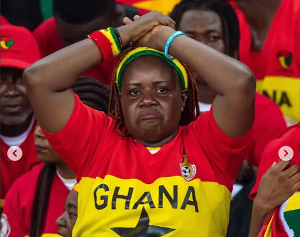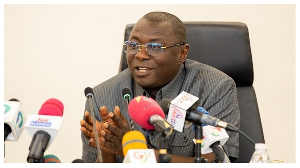The devastating effects of COVID-19 cannot be over emphasized across the globe at this moment. It is estimated that the economic cost of coronavirus to the global economy will be in excess of $1trillion this year alone, according to UN report. The same UN report projects that Africa faces massive cost in billions of dollars and a huge rise in its already mounting debts.
In Ghana, the economic cost of COVID-19 is preliminary projected at $1.6billion, forcing the Finance Minister to recently review economic growth target from 6.8% to 2.5%.
The WHO has issued a warning to Africa on how COVID-19 can ravage the entire continent which already has enormous deficit in healthcare delivery and its accompanying logistical supplies. These are scary times on all fronts, but we have also seen that in the midst of the gloom lies opportunities.
So how can Africa and for that matter Ghana, navigate this looming disaster staring us in our faces?
In the wake of the coronavirus outbreak in China, one of the ways identified for transmission was through the use of cash. Africa is the home of mobile money. It is without question, Africa’s leading resource for digital financial market. In 2018 year alone, mobile money transactions in Sub-Saharan Africa topped $26.8billion. In 2019, mobile money transactional value in Ghana rose to $6.1billion, a growth of 45% from the previous years’ figures. This is more than the traditional bank cheque transaction value of $3.12billion for the same period. Needless to say, a dip in cheque transaction value by $55million from the previous years’ figure.
If there is any time to capitalize on digitizing Africa’s economy, it is now, in the middle of a global pandemic that seems to have no end in sight.
At the beginning of March this year, just when Ghana had announced its first cases of coronavirus, the Bank of Ghana announced new policy measures to encourage the use of electronic methods payments, boost e-commerce and minimize the spread of COVID-19 through the use of cash. The measures also provided some waivers on applicable transaction fees, although capped at a minimum. Nonetheless, this is welcoming and very proactive on the part of the Central Bank and more so, at a time when Government has been preaching digital economy at the least opportunity.
I would, however, recommend that the Bank of Ghana goes a step further by abolishing all forms of cash payment below GHS100 (?$15) for all goods and services and adopt electronic payment for such transactions.
Is it time for Africa’s industrial revolution?
In 2018, trade among African nations amounted to just 12% of the total GDP of the entire continent. The continent is heavily dependent on foreign imports of goods and services and Ghana is no different.
Ghana for years has relied on imported basic essentials to meet local demand. The recent demand for hand sanitizers is not an exception, leading to astronomical increase in price. As every household needed a safeguard in the fight against the global pandemic, the shortage and proliferation in price has seen the emergence of local manufacturing of hand sanitizers. This week, the Food and Drugs Authority announced that it has given approval to 370 local producers, including renowned distilleries, who have converted parts of their factories for the production of the now must-have item, to boost the fight against COVID-19.
All of sudden, my Ghana is now producing hand sanitizers in quantities enough to export to the sub-region. Can you imagine what we are capable of doing if we are deliberate in our approach to self-dependency in our development agenda?
With the right policy direction, government support and the will to do things differently, Africa could turn this pandemic to a financial and industrial revolution.
Opinions of Saturday, 18 April 2020
Columnist: Charles Edem Goh



















